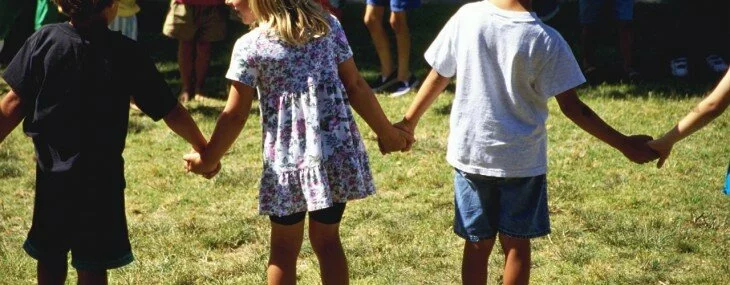When was the last time you walked into a cafeteria and scanned the room for a friendly face? This is an everyday dilemma that children in schools face. While many look forward to the opportunity to connect with friends, others dread the ringing bell because they know they will sit alone and endure thirty minutes of painful gossip and, for some, physical attacks.
The lack of civility that results in bullying is a daily experience within our homes, schools, communities, and workplaces. The wounds created by these acts leave lasting scars and hardened hearts.
Empathy and trust are cornerstones of civility. And like most life skills, they are learned by example.
Empathy is not to be confused with sympathy. When expressing sympathy, we simply acknowledge a person’s emotional hardship and provide them comfort and assurance. When expressing empathy, we understand what the other person feels because we have personally experienced a similar situation, or we can put ourselves in their shoes.
Sympathy is external: “I feel sorry for you.” Empathy is internal: “I feel your pain.”
The desire to get what one wants or needs at any cost—regardless of what the other person wants or needs—creates an environment prime for bullying.
One who demonstrates civility considers everyone involved in a situation and searches for a solution that will benefit all. There is an understanding that every action taken somehow has an impact on others.
Those who can empathize with others’ feelings are less likely to bully others. The following are some practical ways to teach your children empathy.
Role Play
Present various situations, real or hypothetical, in which someone is being bullied.
- Ask your child what he or she thinks about the situation.
- Ask your child how he or she feels about the act.
- Ask your child how the person being bullied may feel.
- Ask your child how he or she would feel if bullied. Then ask what he or she would like others to do to help stop the bullying.
- Finally, ask your child what things he or she can do if someone is being bullied.
Listen
Practice listening skills. Effective listening requires focus. It is far more than simply being quiet.
- Face the person speaking.
- Make eye contact.
- Give others time to share and clarify their thoughts to make sure that you understand what they want to say.
- Ask follow-up questions.
Set aside time each day with your child, without technology and other distractions, to practice the art of listening.
Demonstrating empathy means not only listening to the words spoken but listening to hear the heart of the other person.
I love the expression: “Let people live in your heart.” A healthy heart continues to expand to embrace others. For this to happen, one must feel safe as this requires trust.
When we practice empathy by opening our hearts to feel what another person feels, we expose ourselves to the possibility of being hurt, as there is no guarantee that others will respond appropriately. The goal is to learn to set healthy boundaries and to be heart-guarded, not hard-hearted.
Empathy and trust create an environment in which children and adults feel safe and cared for, and where relationships can flourish.
“Civility is the art and act of caring for others.” ~ Deborah King
©2013 What Would Mrs King Do? If you would like to use this article in your newsletter or blog, you may do so. Please include our credit information: Written by Deborah King, What Would Mrs King Do? © Copyright 2013. I would also appreciate it if you would send us a copy for our files to [email protected].



Speak Your Mind